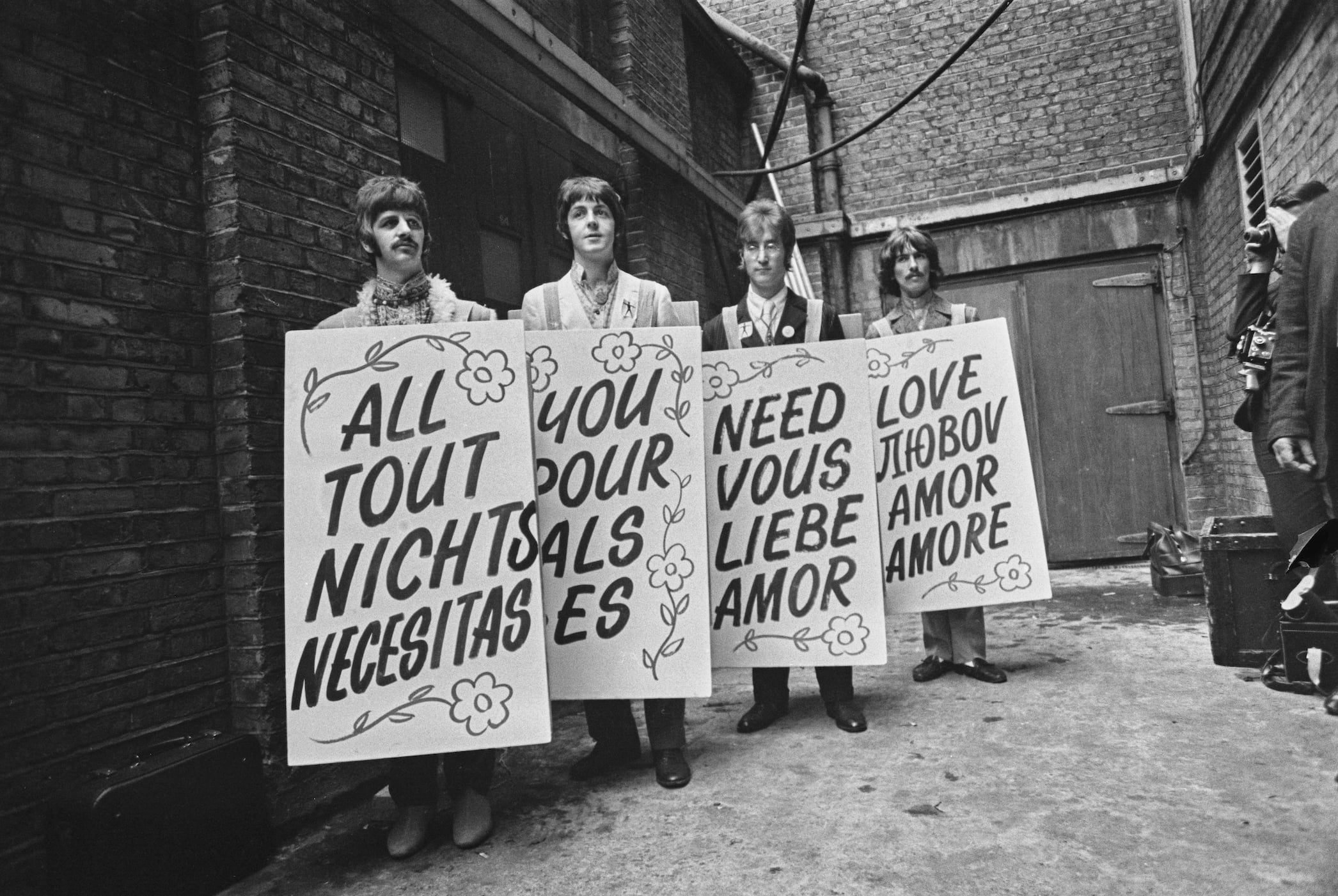
4 of the Most Political Beatles Songs
While a few of The Beatles’ songs got in trouble for drug and sexual references, the band rarely released any political music. While John Lennon was a public activist for pacifism and human rights, his politics were mostly preached in his solo career. However, there were a few times when the band did voice their political views, even if they were more subtle.
Here are 4 of the most political Beatles songs
‘All You Need Is Love’

“All You Need Is Love” was Britain’s contribution to Our World, the first live global television link. The most memorable moment came when The Beatles performed this song in psychedelic outfits with some friends they invited, including The Rolling Stones, the Who, and the Small Faces. While the track isn’t inherently political, the lyrics promoted love and unity during the Vietnam war.
The song also became an anthem for the 1967 Summer of Love, a hippie movement that promoted anti-war and free love. While many praised the Beatles for this song at the time, many critics find this song naive and simplistic in retrospect. It’s a nice message, but not realistic in certain situations.
‘Blackbird’
“Blackbird” is a track from 1968’s The White Album written by Paul McCartney. McCartney wrote the song in support of the U.S. Civil Rights movement during the 1960s. The title came to him after seeing footage of the Little Rock nine and the little girl being escorted into the newly-desegregated school. Bird is slang for a girl in Britain, so he used this metaphor to represent a black girl.
In an interview with Apple Music, McCartney explained why he often uses metaphors to address social issues rather than being more direct.
“I use metaphors so that, on the one hand, if you’re a little kid…a lot of little kids say to me that ‘Blackbird’ is their favorite song,” McCartney said. “So, if you’re a little kid, they don’t know about civil rights. They’re seeing a blackbird and the freedom, and they’re feeling the idea of just escaping barriers and stuff. They just like it as a little song…It’s not hiding it, it’s just using a metaphor. I sometimes think that’s stronger.”
‘Taxman’
“Taxman” was the first of The Beatles’ songs that made a political statement. The track was mainly written by George Harrison, with a bit of help from Lennon. Harrison wrote the track to protest the progressive tax system in the U.K. that was taking a hefty amount of The Beatles’ earnings. He was especially frustrated that these taxes were being used to fund military weapons.
Harrison wasn’t afraid to be direct as the lyrics namedrop Prime Minister Harold Wilson and Ted Heath, the leader of the Conservative Party. The track was released on 1966’s Revolver but didn’t chart since it wasn’t released as a single.
‘Revolution’
“Revolution” is the most overtly political song by The Beatles. Lennon wrote the song to address the American protests against the Vietnam war. While the song demanded the need for social change, it also condemned the violent methods taken to get there. The song was released in 1968 as the B-side to “Hey Jude.” While it was a successful B-side, reaching No. 12 on the U.S. Billboard Hot 100, Lennon was surprised by the criticism it received from the counterculture movements.
The political left was disappointed with The Beatles as Lennon sings “count me out,” essentially criticizing the left’s methods for change. Lennon tried to show his support for the New Left with “Revolution 1”, where he changed the line to “Count me out (in).” The song sparked debate in the counterculture movement, with many unsure of where The Beatles stood.


